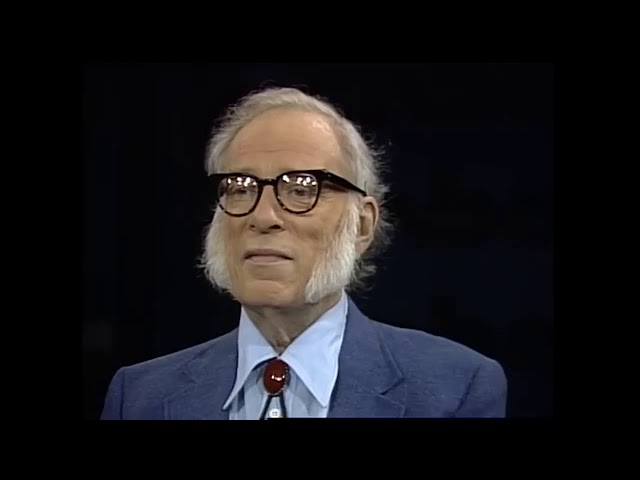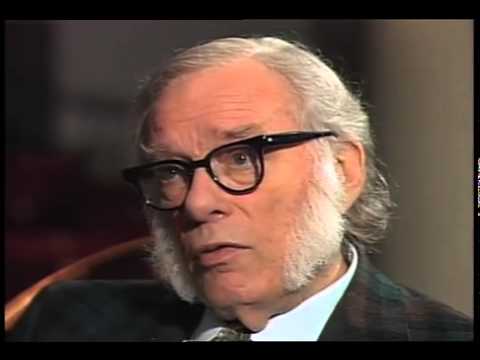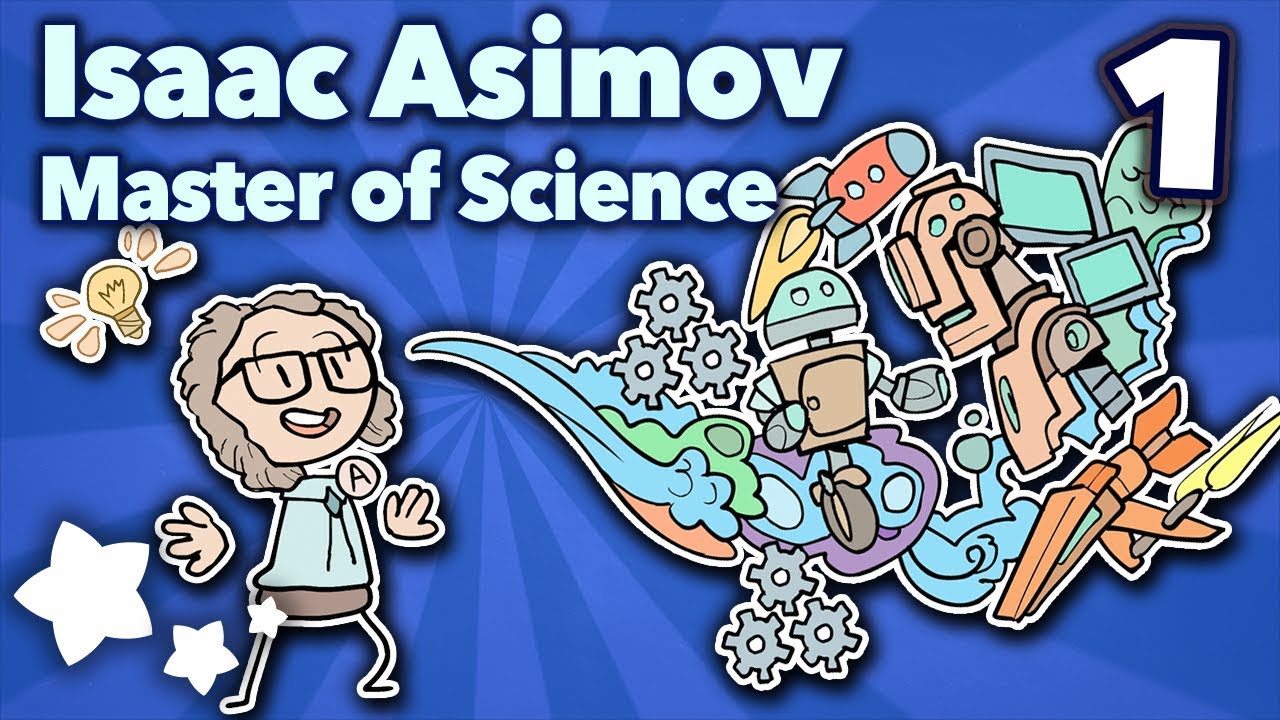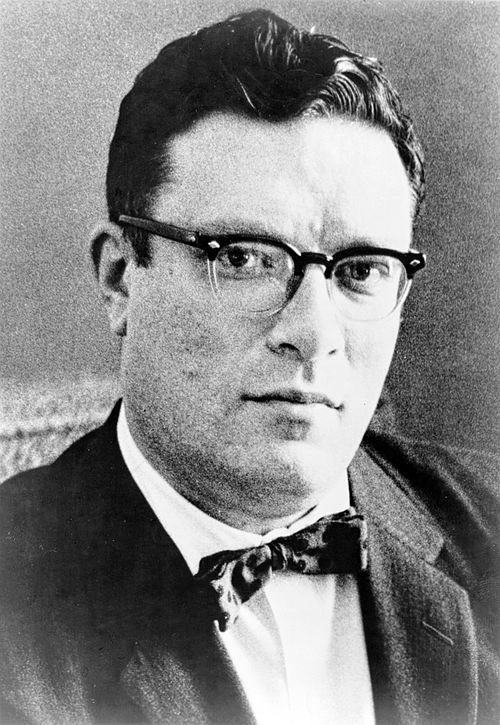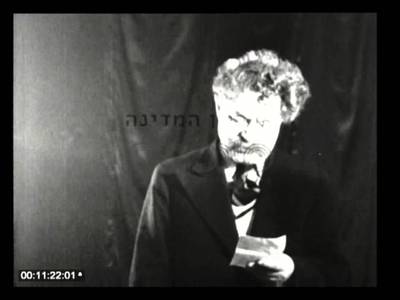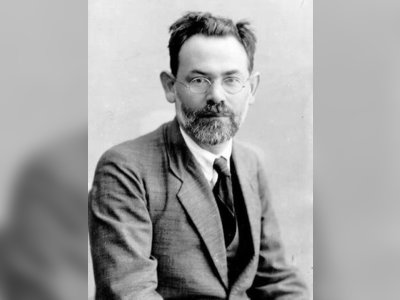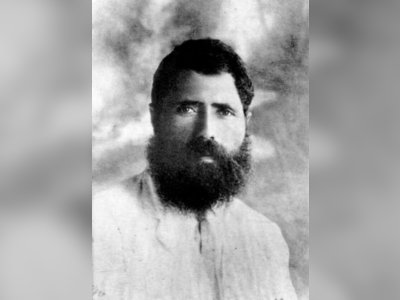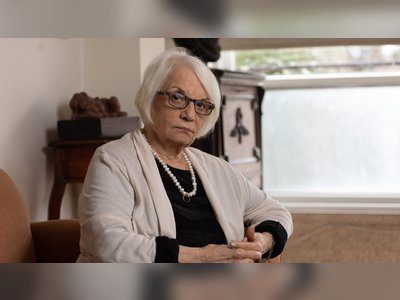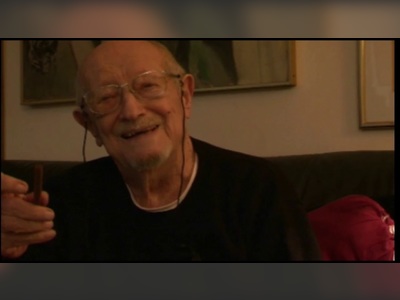מורשת גדולי האומה
בזכותם קיים
beta
Isaac Asimov: A Pioneer in Science Fiction and Biochemistry
Isaac Asimov, born on January 2, 1920, and passing away on April 6, 1992, was a renowned American biochemist and author of Jewish descent, born in the Soviet Union. Throughout his prolific career, he authored more than 500 books spanning various genres, but he is best known for his contributions to science fiction literature.
In honor of his work, an asteroid was named after him (5020 Asimov). He received prestigious awards such as the Hugo and Nebula Awards multiple times, along with numerous other accolades and 14 honorary doctorates. In 1987, he became the eighth writer to win the "Grand Master" award (renamed the Damon Knight Memorial Grand Master Award in 2002), an annual recognition for distinguished science fiction authors, alongside the presentation of the Nebula Awards.
Biography
Isaac Asimov was born on January 2, 1920, into a Jewish family in Petrovichi, a town near Smolensk in the Soviet Union. His parents named him Yitzhak, a name he used throughout his life in interviews with Hebrew-language newspapers. In 1923, his family immigrated to the United States, where he grew up in Brooklyn, New York, dividing his time between school in the mornings and his parents' candy and newspaper store in the neighborhood.
Asimov first encountered science fiction magazines in his parents' store and began reading them avidly. At the age of 17, he began writing his own stories and sold them to science fiction magazines, which were highly popular at the time. John W. Campbell, the editor of "Astounding Stories," recognized Asimov's unique talent and mentored him.
At the age of 19, in 1939, Asimov earned his undergraduate degree in mathematics from Columbia University, and at the age of 28, in 1948, he obtained his Ph.D. He joined the faculty at Boston University but, in 1958, his income from book sales surpassed his academic earnings. Asimov remained at the university and eventually achieved the rank of professor emeritus in 1979. His personal papers from 1965 onwards are preserved in the Boston University Library. He was a member and vice president of the Mensa society, whose members have an IQ in the top 2% of the population.
Isaac Asimov married Gertrude Blugerman on July 26, 1942, and they had two children, David (1951) and Robin (1955). They divorced in 1973, and Asimov remarried in the same year to Janet Jeppson.
For many years, Asimov considered himself an atheist, although he distanced himself from the term as he felt it described what he did not believe rather than what he did. Later, he found the term "humanist" to be a more fitting description.
Isaac Asimov passed away on April 6, 1992, due to complications from a heart and kidney failure caused by AIDS, which he contracted through a blood transfusion during heart surgery. His AIDS diagnosis remained a secret for ten years after his death and was only revealed in a biography published by his widow, Janet Asimov, titled "It's Been a Good Life."
Literary Works
Asimov's first science fiction book, "Pebble in the Sky," foresaw that technological advancement could be hindered by the fear of wars. He continued to write prolifically, producing a wide range of works for over 50 years, even during vacations and travels.
Many of his works contain allusions to human history, along with elements of future speculation as he attempted to predict the course of humanity. His books include intergalactic adventures and depictions of reality thousands of years into the future. Asimov's alien-free robot stories also delve into human psychology, exploring how future humans might differ psychologically.
In 1941, Asimov authored a short story called "Nightfall," based on a simple yet remarkable idea. It describes a world with multiple suns, where darkness is rare and causes societal upheaval. The story garnered great success and was selected in 1968 by the Science Fiction Writers of America as the "best science fiction short story of all time." It was translated into Hebrew and published in Fantasy 2000 magazine.
His most beloved short story, written in a single afternoon in 1956 without requiring any editing, is "The Last Question," later published in the collection "Nine Tomorrows." The story explores humanity's ability to confront the phenomenon of entropy and overcome it, focusing on a supercomputer called Multivac.
Isaac Asimov gained particular recognition for his Foundation series, consisting of seven books. The series won the Hugo Award for Best All-Time Series in 1966 in the category of the best science fiction series in history. The series was successfully translated into Hebrew by Emmanuel Lotem and Amos Gepen. Initially, the Foundation series began as a collection of short stories that were later connected into three parts. Asimov added two prequels and two sequels, aiming to create a cohesive narrative spanning thousands of years into the future, describing an "ancient history" of future human society.
Asimov also formulated the Three Laws of Robotics in his book "I, Robot":
1. A robot may not harm a human being or, through inaction, allow a human being to come to harm.
2. A robot must obey the orders given to it by human beings, except where such orders would conflict with the First Law.
3. A robot must protect its own existence as long as such protection does not conflict with the First or Second Law.
Later, Asimov introduced a fourth law in "Robots and Empire," called the "Zeroth Law," which took precedence over the original three laws.
Legacy
Isaac Asimov's extensive body of work has left an indelible mark on science fiction literature. His novels, short stories, and essays continue to captivate readers and inspire writers. His profound ideas about robotics, future history, and the ethical dilemmas of science and technology remain relevant and thought-provoking to this day.
Asimov's legacy is not confined to science fiction alone; his contributions to biochemistry and science popularization also left an enduring impact. He was a prolific educator and communicator of science, making complex topics accessible to a broad audience.
In summary, Isaac Asimov's life and work encompassed a wide array of achievements, from groundbreaking scientific research to pioneering science fiction storytelling. His unique ability to bridge the gap between science and fiction has secured his place as a beloved and influential figure in both fields.
Biography
Isaac Asimov was born on January 2, 1920, into a Jewish family in Petrovichi, a town near Smolensk in the Soviet Union. His parents named him Yitzhak, a name he used throughout his life in interviews with Hebrew-language newspapers. In 1923, his family immigrated to the United States, where he grew up in Brooklyn, New York, dividing his time between school in the mornings and his parents' candy and newspaper store in the neighborhood.
Asimov first encountered science fiction magazines in his parents' store and began reading them avidly. At the age of 17, he began writing his own stories and sold them to science fiction magazines, which were highly popular at the time. John W. Campbell, the editor of "Astounding Stories," recognized Asimov's unique talent and mentored him.
At the age of 19, in 1939, Asimov earned his undergraduate degree in mathematics from Columbia University, and at the age of 28, in 1948, he obtained his Ph.D. He joined the faculty at Boston University but, in 1958, his income from book sales surpassed his academic earnings. Asimov remained at the university and eventually achieved the rank of professor emeritus in 1979. His personal papers from 1965 onwards are preserved in the Boston University Library. He was a member and vice president of the Mensa society, whose members have an IQ in the top 2% of the population.
Isaac Asimov married Gertrude Blugerman on July 26, 1942, and they had two children, David (1951) and Robin (1955). They divorced in 1973, and Asimov remarried in the same year to Janet Jeppson.
For many years, Asimov considered himself an atheist, although he distanced himself from the term as he felt it described what he did not believe rather than what he did. Later, he found the term "humanist" to be a more fitting description.
Isaac Asimov passed away on April 6, 1992, due to complications from a heart and kidney failure caused by AIDS, which he contracted through a blood transfusion during heart surgery. His AIDS diagnosis remained a secret for ten years after his death and was only revealed in a biography published by his widow, Janet Asimov, titled "It's Been a Good Life."
Literary Works
Asimov's first science fiction book, "Pebble in the Sky," foresaw that technological advancement could be hindered by the fear of wars. He continued to write prolifically, producing a wide range of works for over 50 years, even during vacations and travels.
Many of his works contain allusions to human history, along with elements of future speculation as he attempted to predict the course of humanity. His books include intergalactic adventures and depictions of reality thousands of years into the future. Asimov's alien-free robot stories also delve into human psychology, exploring how future humans might differ psychologically.
In 1941, Asimov authored a short story called "Nightfall," based on a simple yet remarkable idea. It describes a world with multiple suns, where darkness is rare and causes societal upheaval. The story garnered great success and was selected in 1968 by the Science Fiction Writers of America as the "best science fiction short story of all time." It was translated into Hebrew and published in Fantasy 2000 magazine.
His most beloved short story, written in a single afternoon in 1956 without requiring any editing, is "The Last Question," later published in the collection "Nine Tomorrows." The story explores humanity's ability to confront the phenomenon of entropy and overcome it, focusing on a supercomputer called Multivac.
Isaac Asimov gained particular recognition for his Foundation series, consisting of seven books. The series won the Hugo Award for Best All-Time Series in 1966 in the category of the best science fiction series in history. The series was successfully translated into Hebrew by Emmanuel Lotem and Amos Gepen. Initially, the Foundation series began as a collection of short stories that were later connected into three parts. Asimov added two prequels and two sequels, aiming to create a cohesive narrative spanning thousands of years into the future, describing an "ancient history" of future human society.
Asimov also formulated the Three Laws of Robotics in his book "I, Robot":
1. A robot may not harm a human being or, through inaction, allow a human being to come to harm.
2. A robot must obey the orders given to it by human beings, except where such orders would conflict with the First Law.
3. A robot must protect its own existence as long as such protection does not conflict with the First or Second Law.
Later, Asimov introduced a fourth law in "Robots and Empire," called the "Zeroth Law," which took precedence over the original three laws.
Legacy
Isaac Asimov's extensive body of work has left an indelible mark on science fiction literature. His novels, short stories, and essays continue to captivate readers and inspire writers. His profound ideas about robotics, future history, and the ethical dilemmas of science and technology remain relevant and thought-provoking to this day.
Asimov's legacy is not confined to science fiction alone; his contributions to biochemistry and science popularization also left an enduring impact. He was a prolific educator and communicator of science, making complex topics accessible to a broad audience.
In summary, Isaac Asimov's life and work encompassed a wide array of achievements, from groundbreaking scientific research to pioneering science fiction storytelling. His unique ability to bridge the gap between science and fiction has secured his place as a beloved and influential figure in both fields.
- אייזק אסימובhe.wikipedia.org
